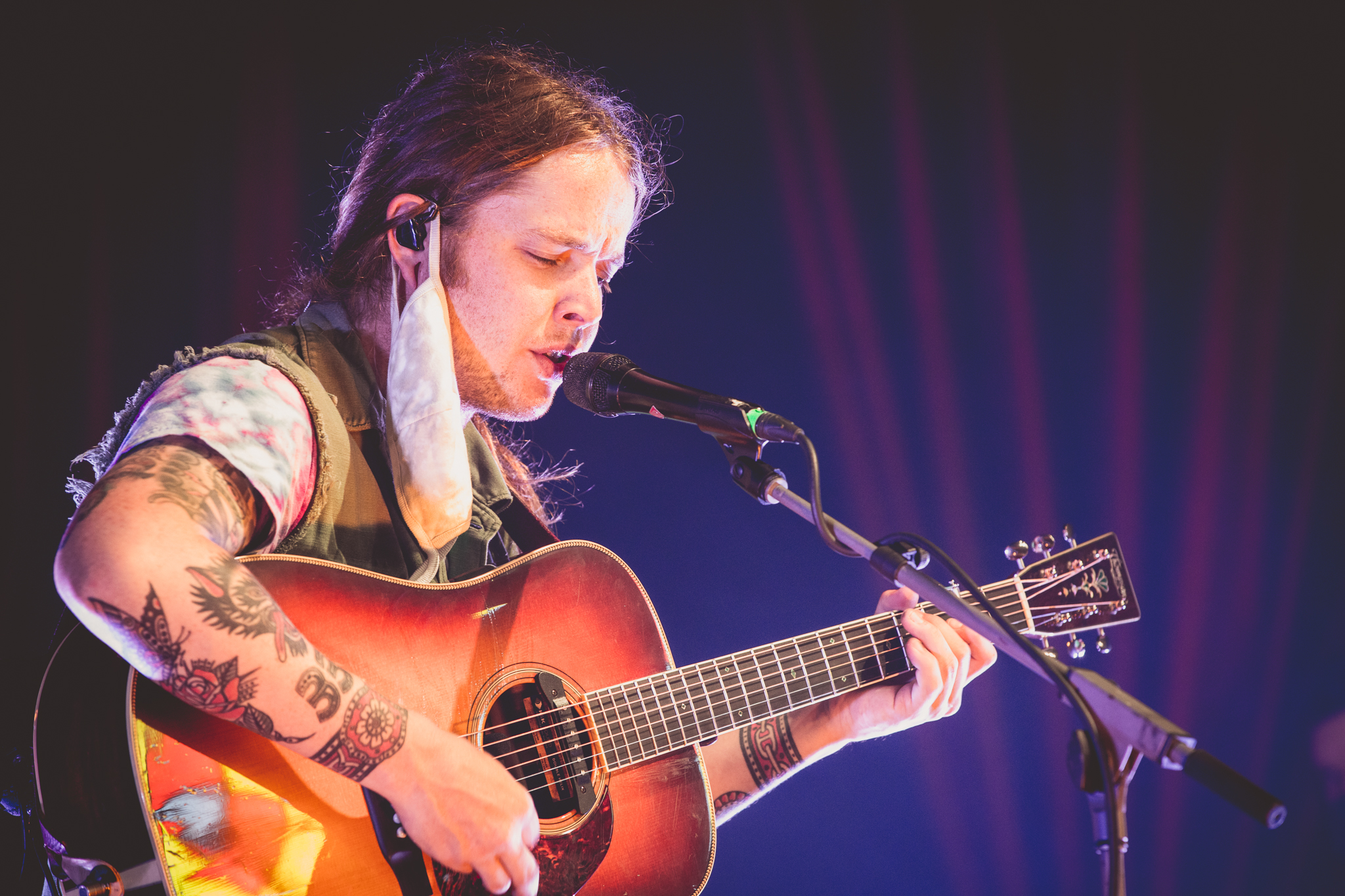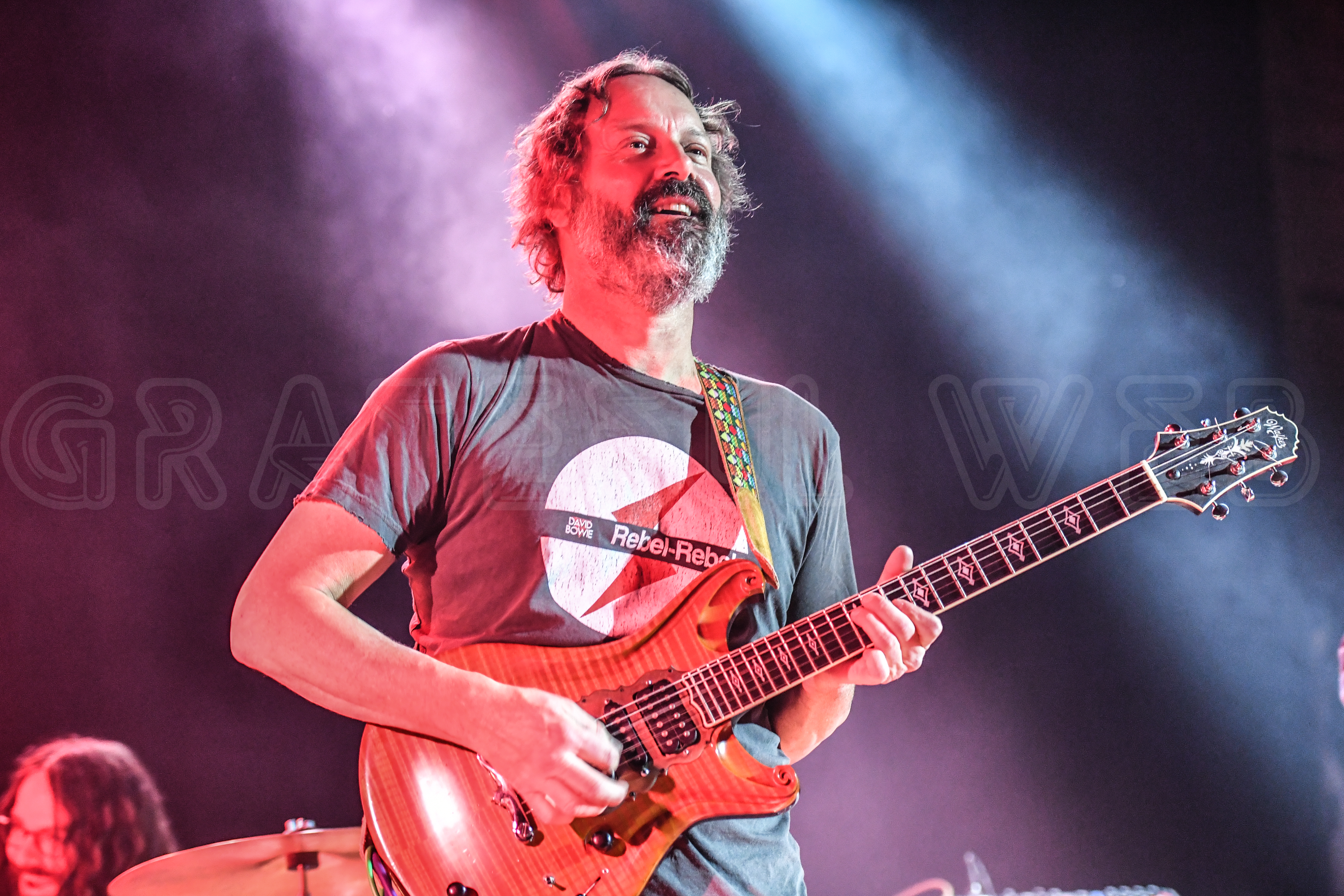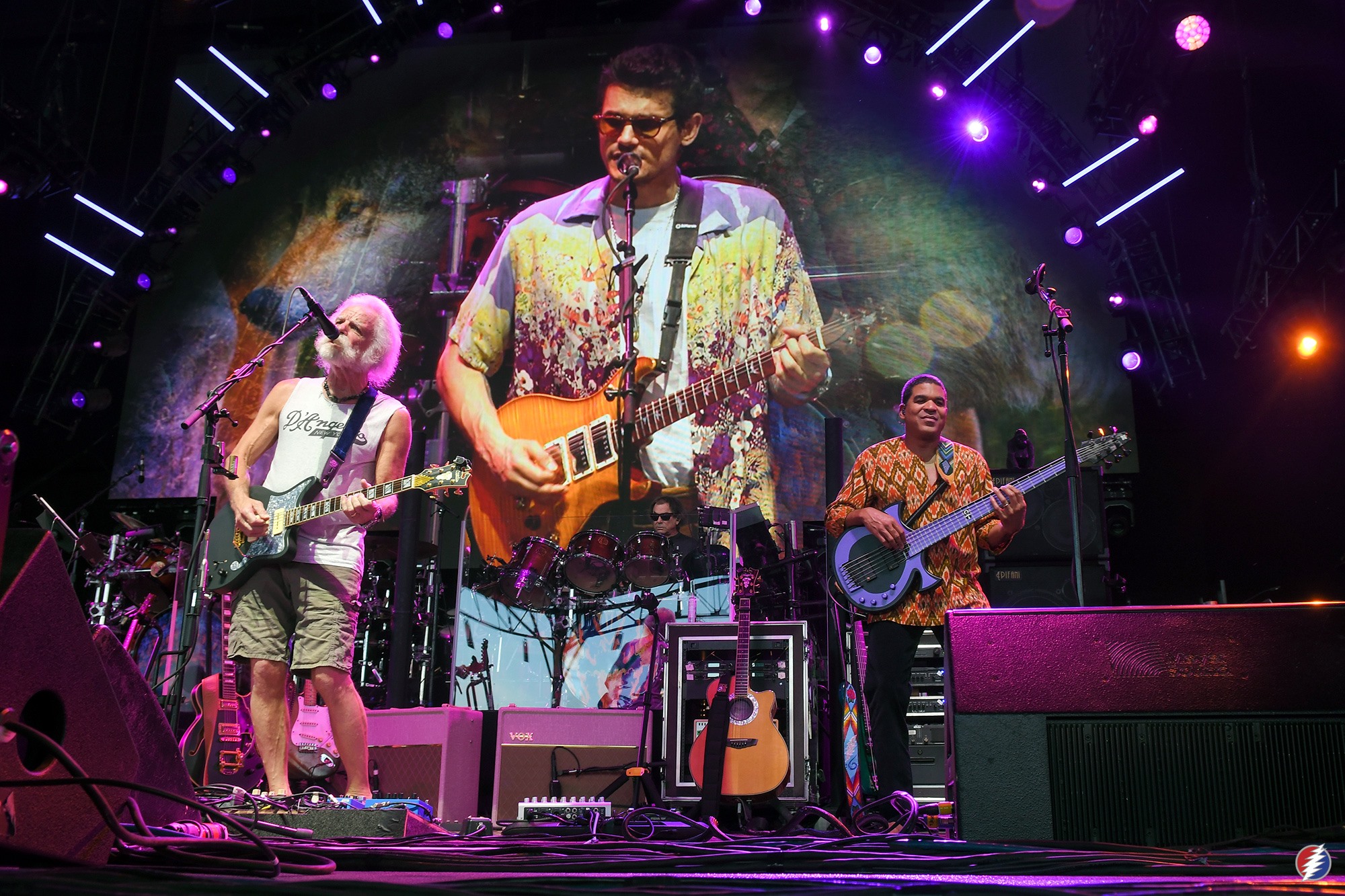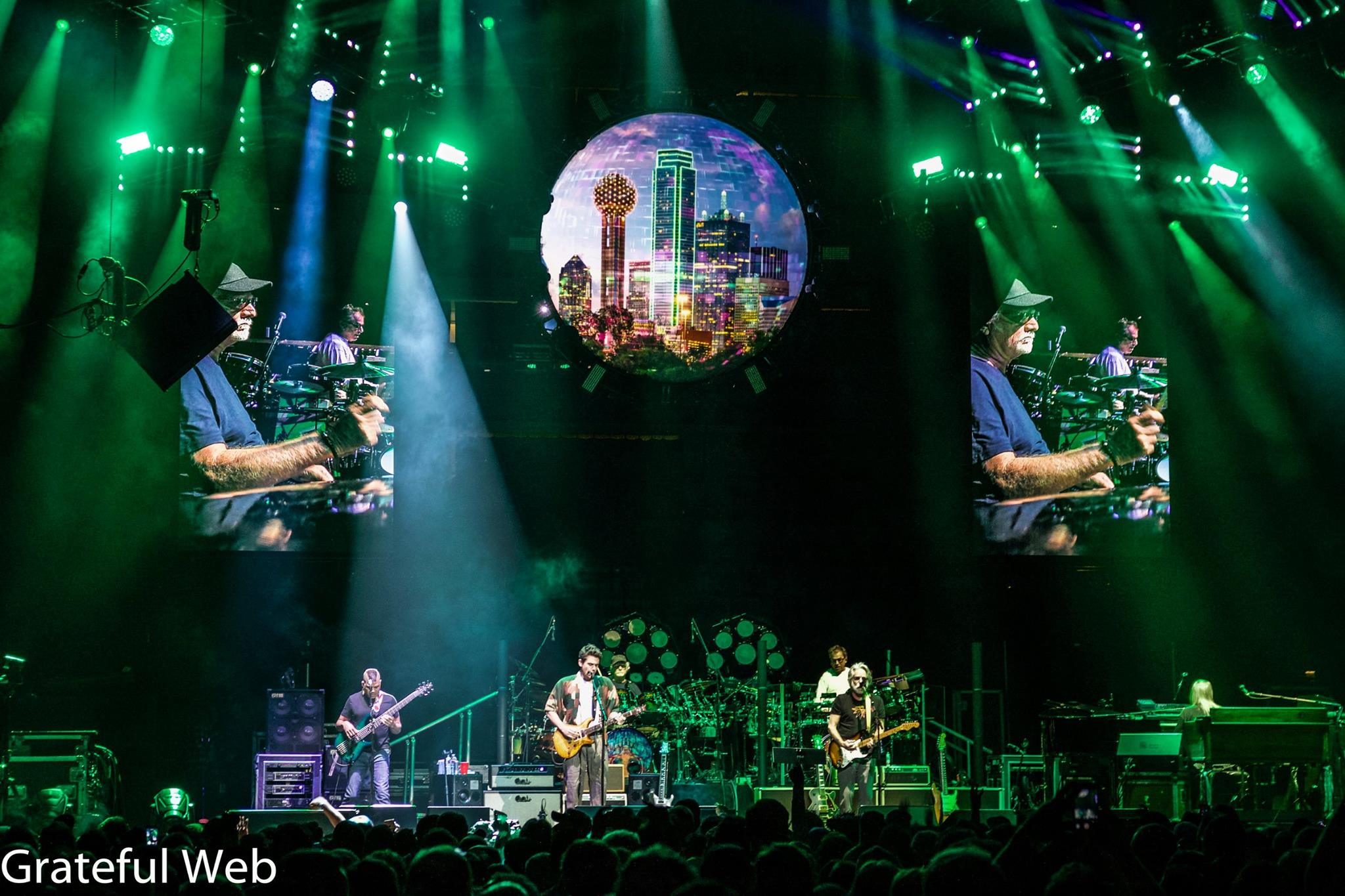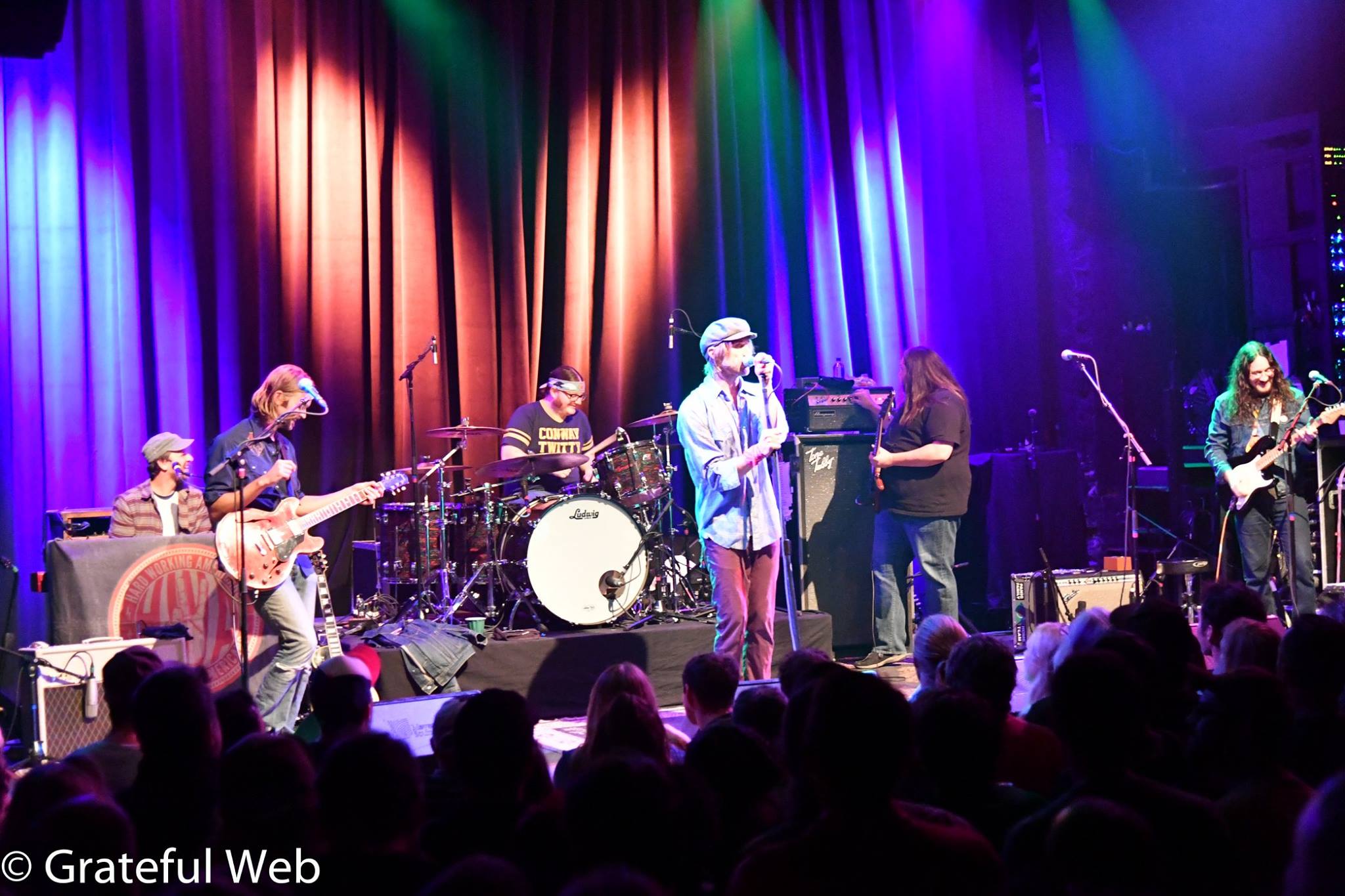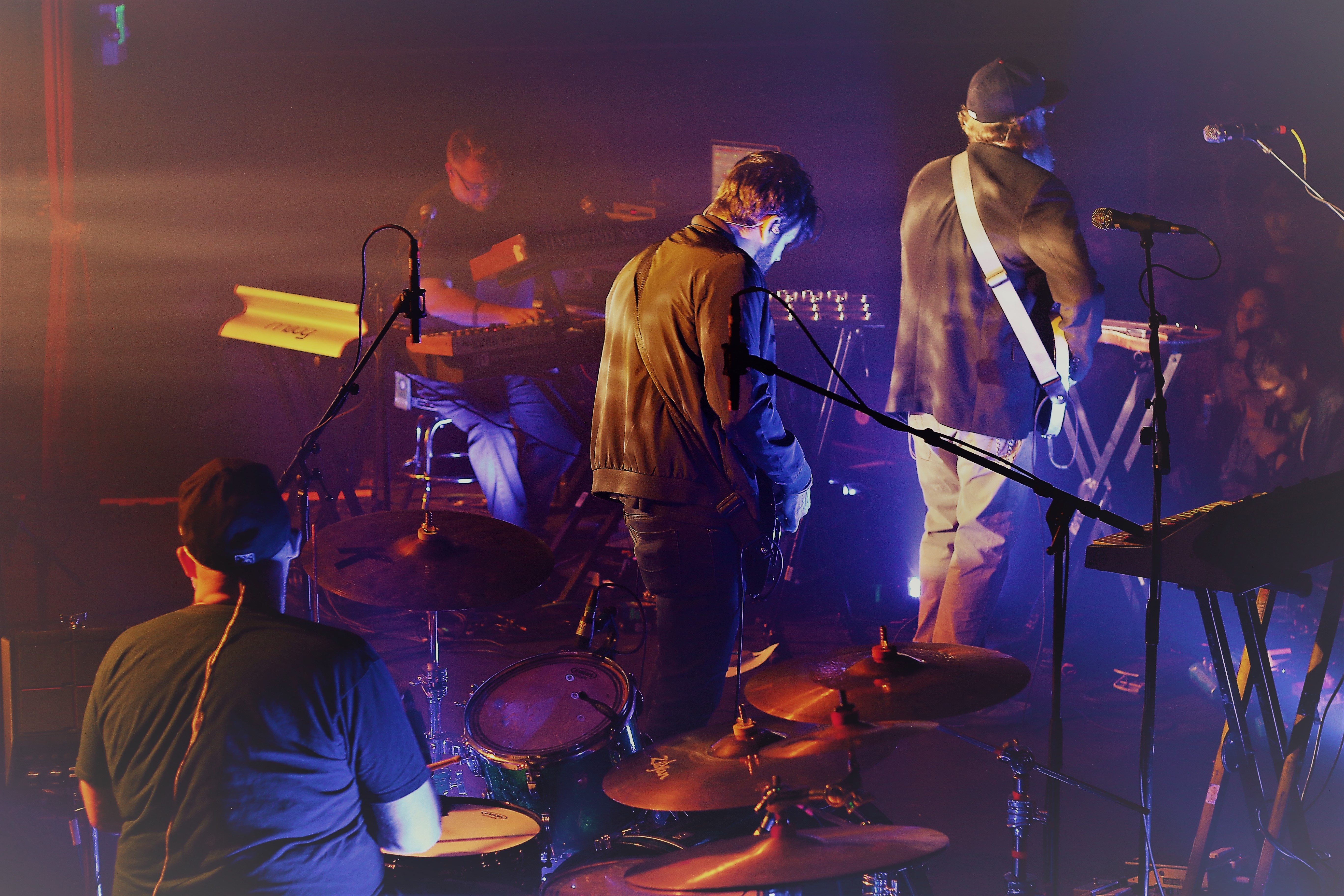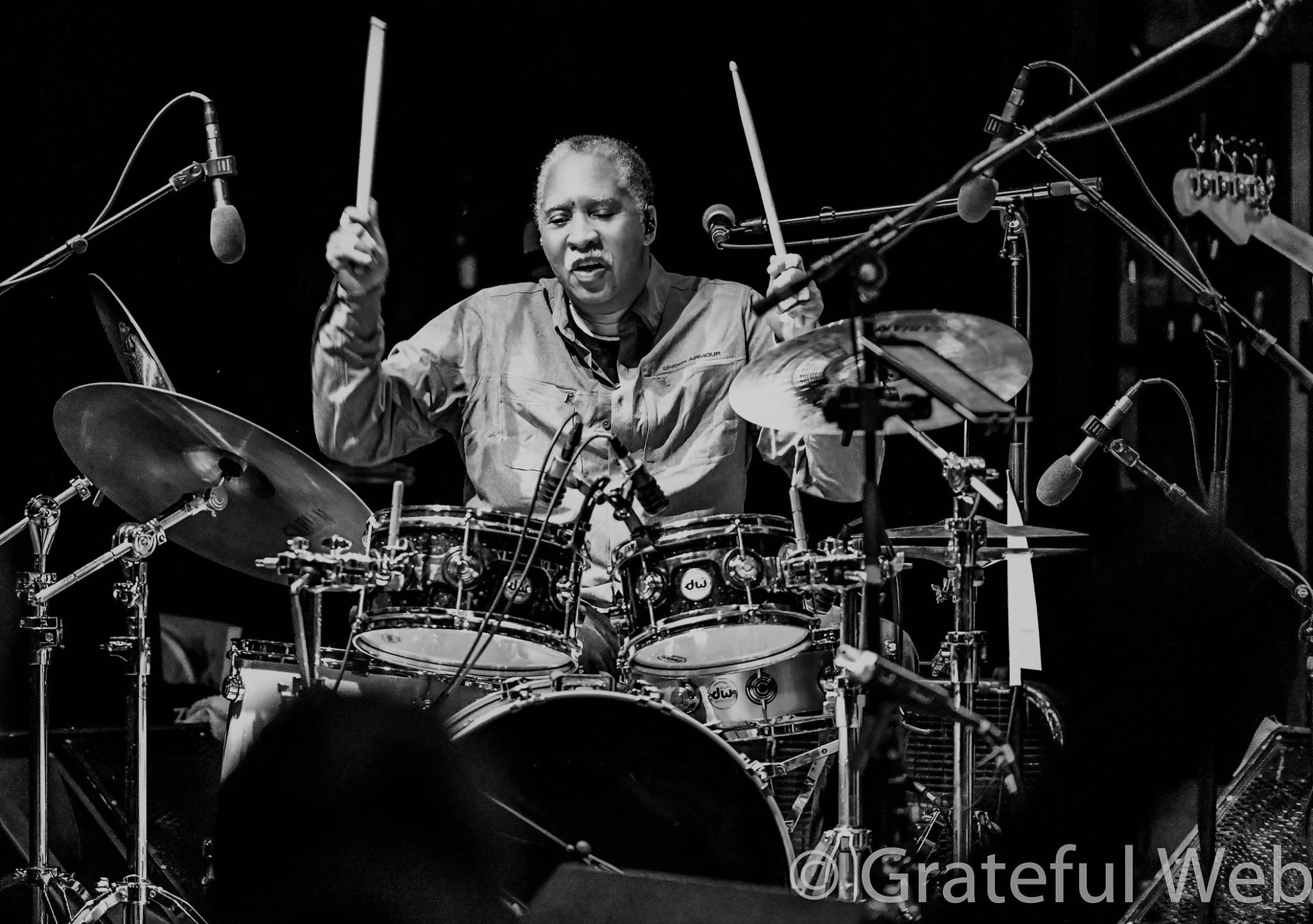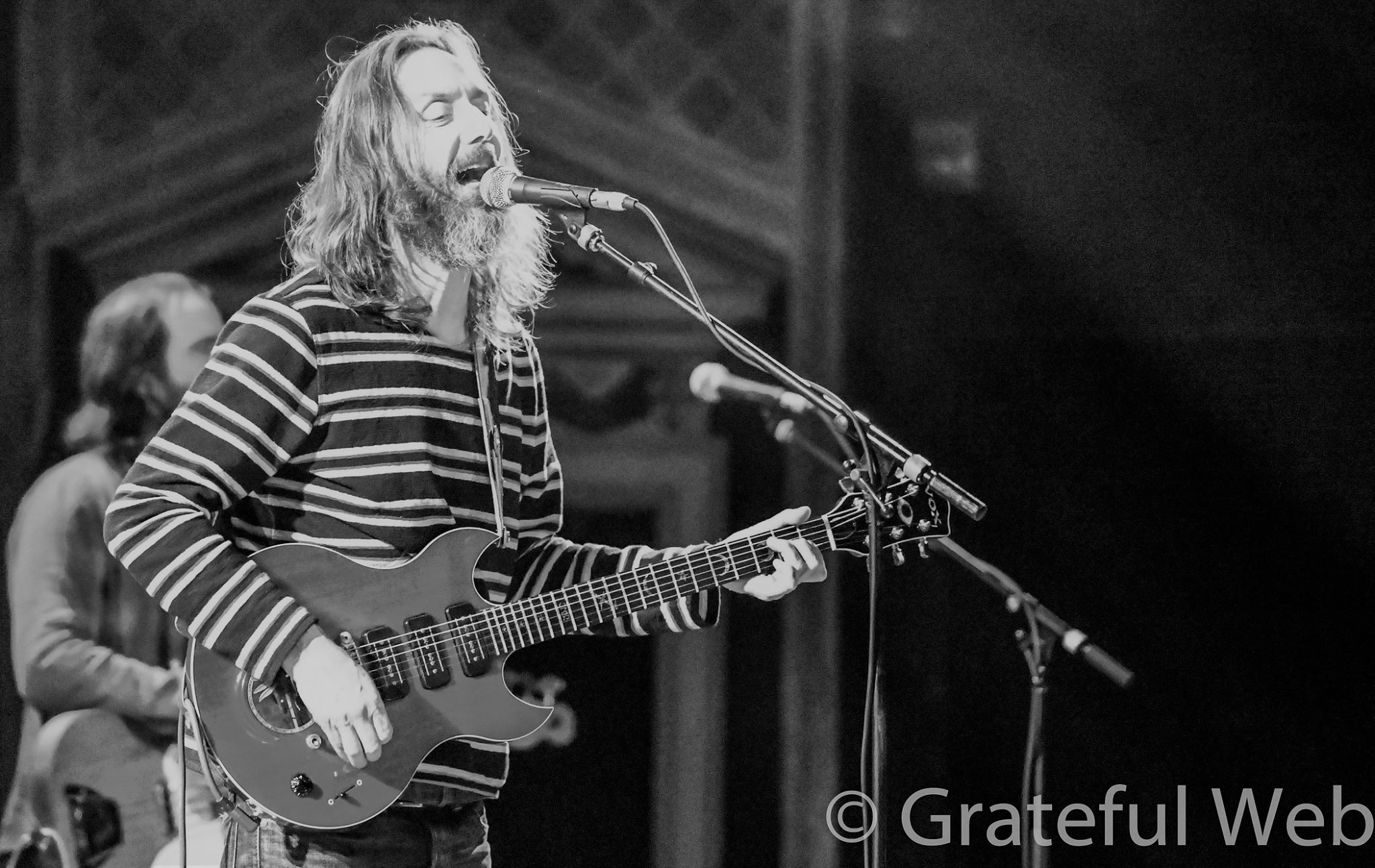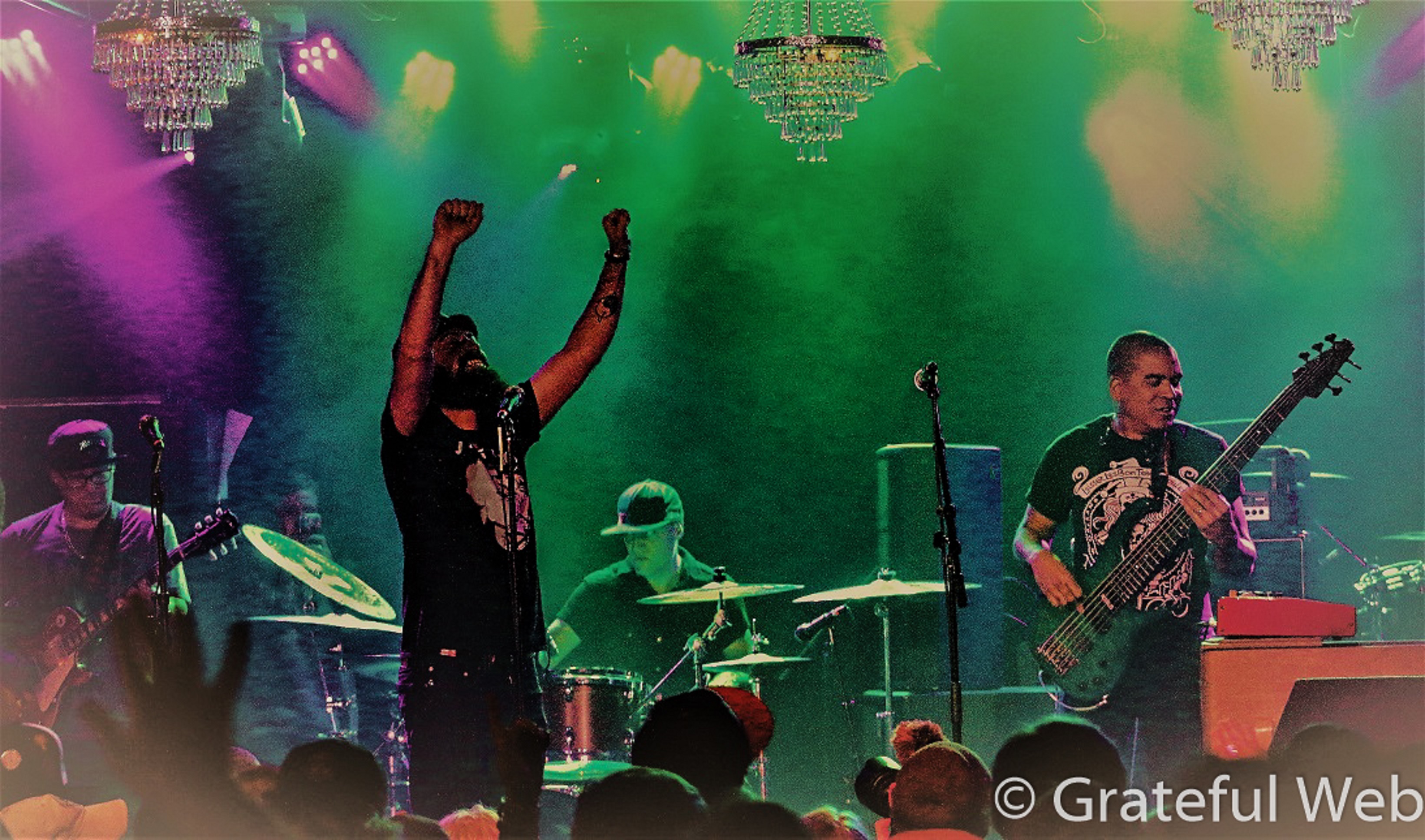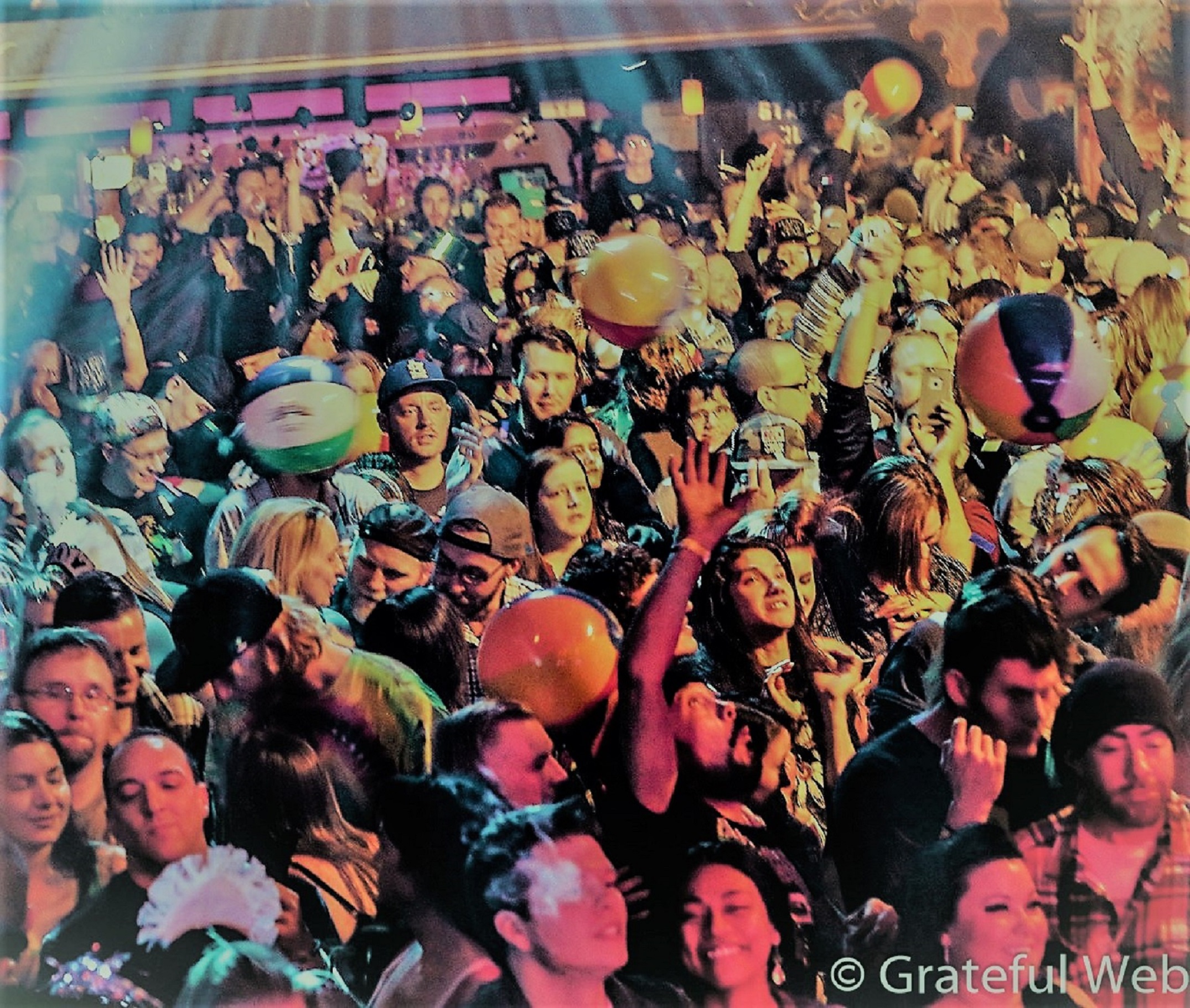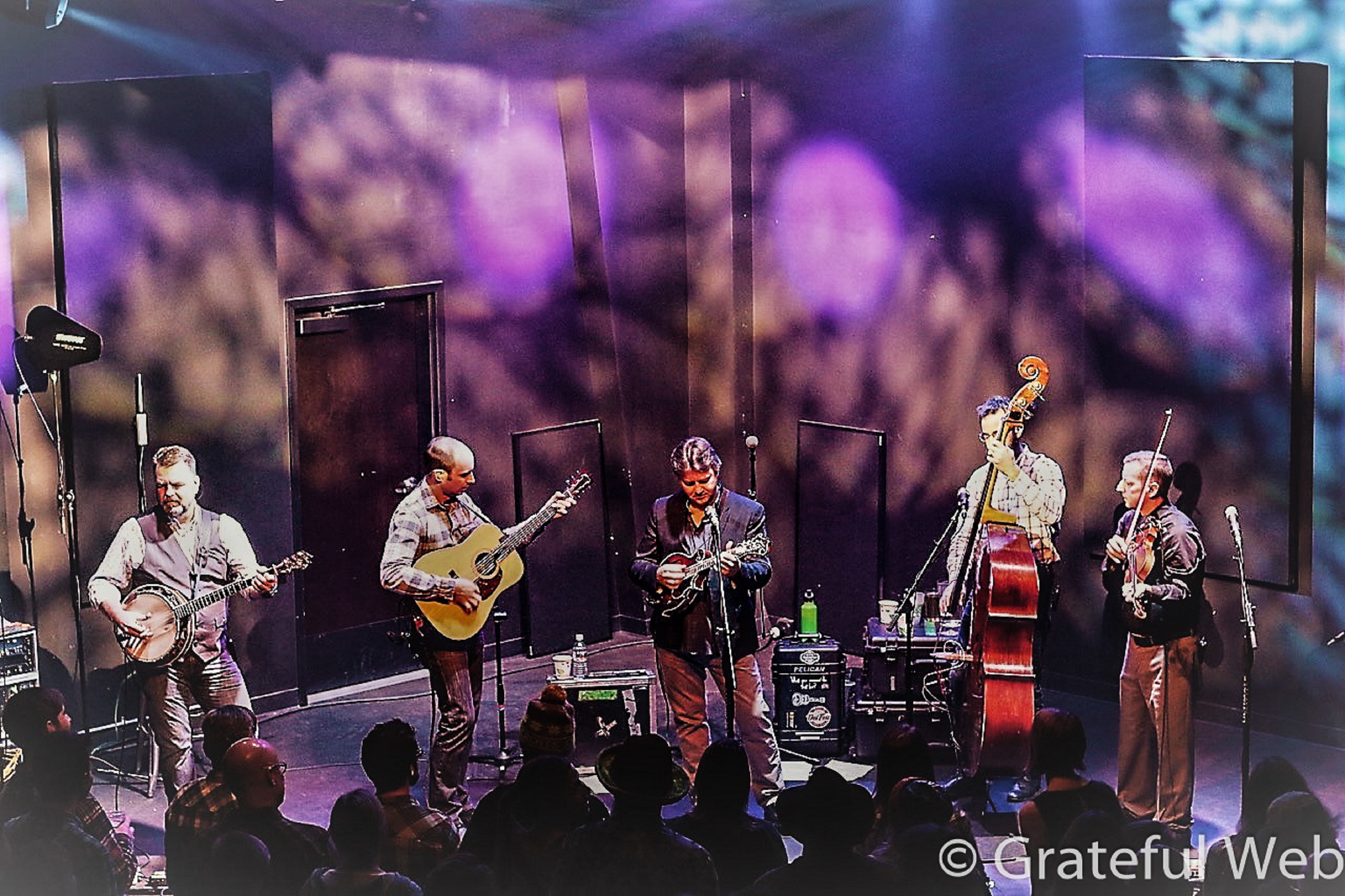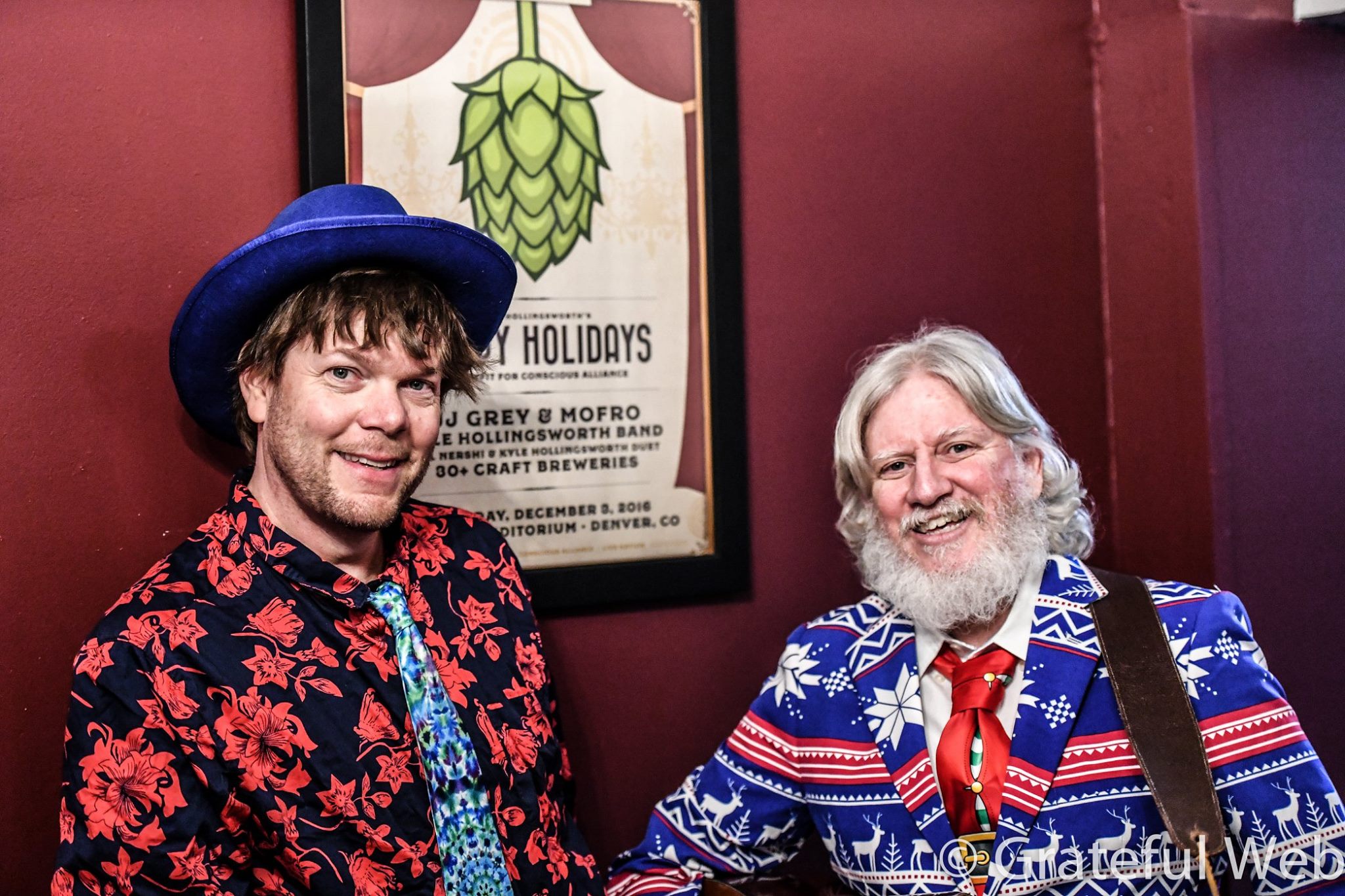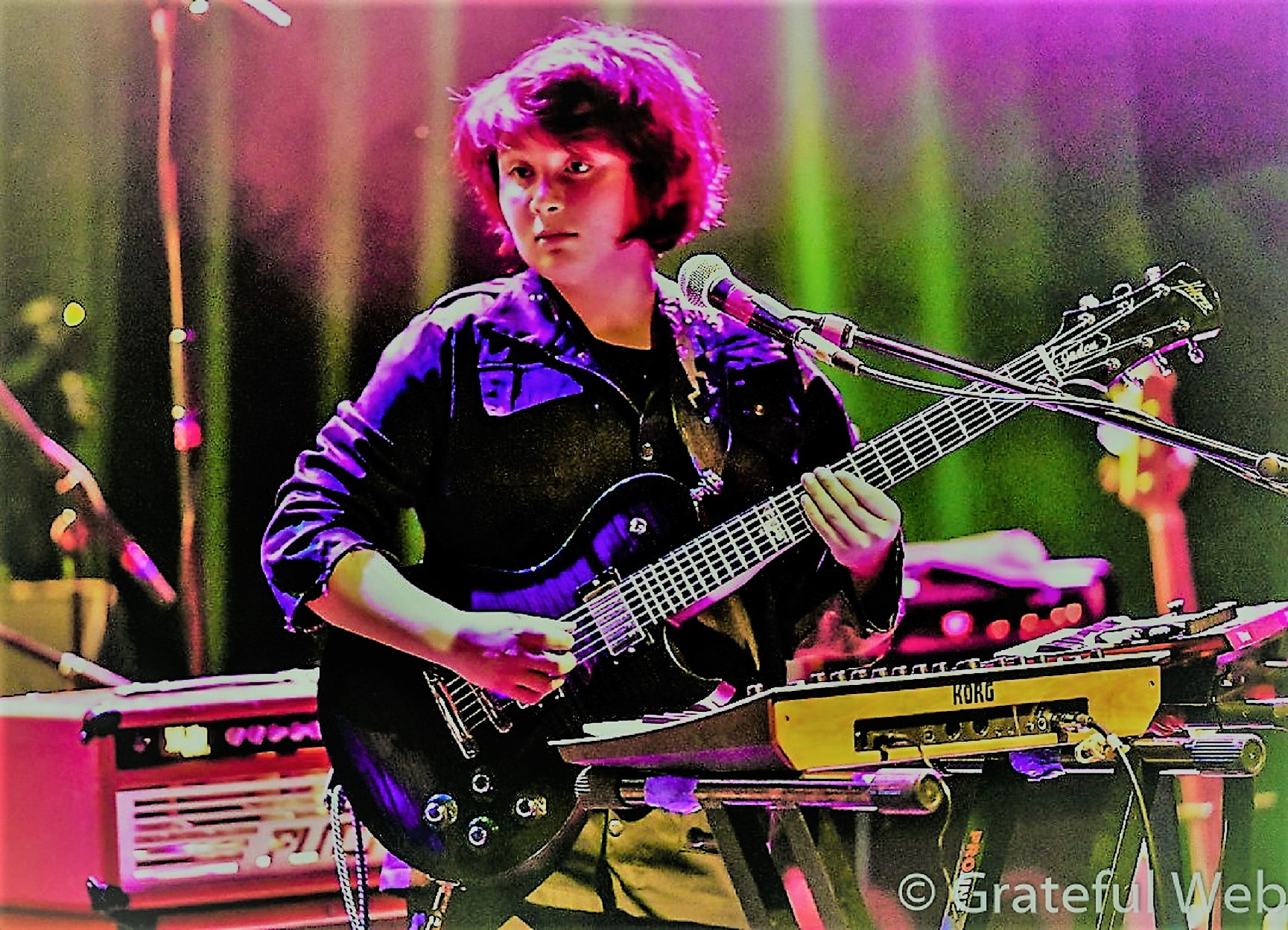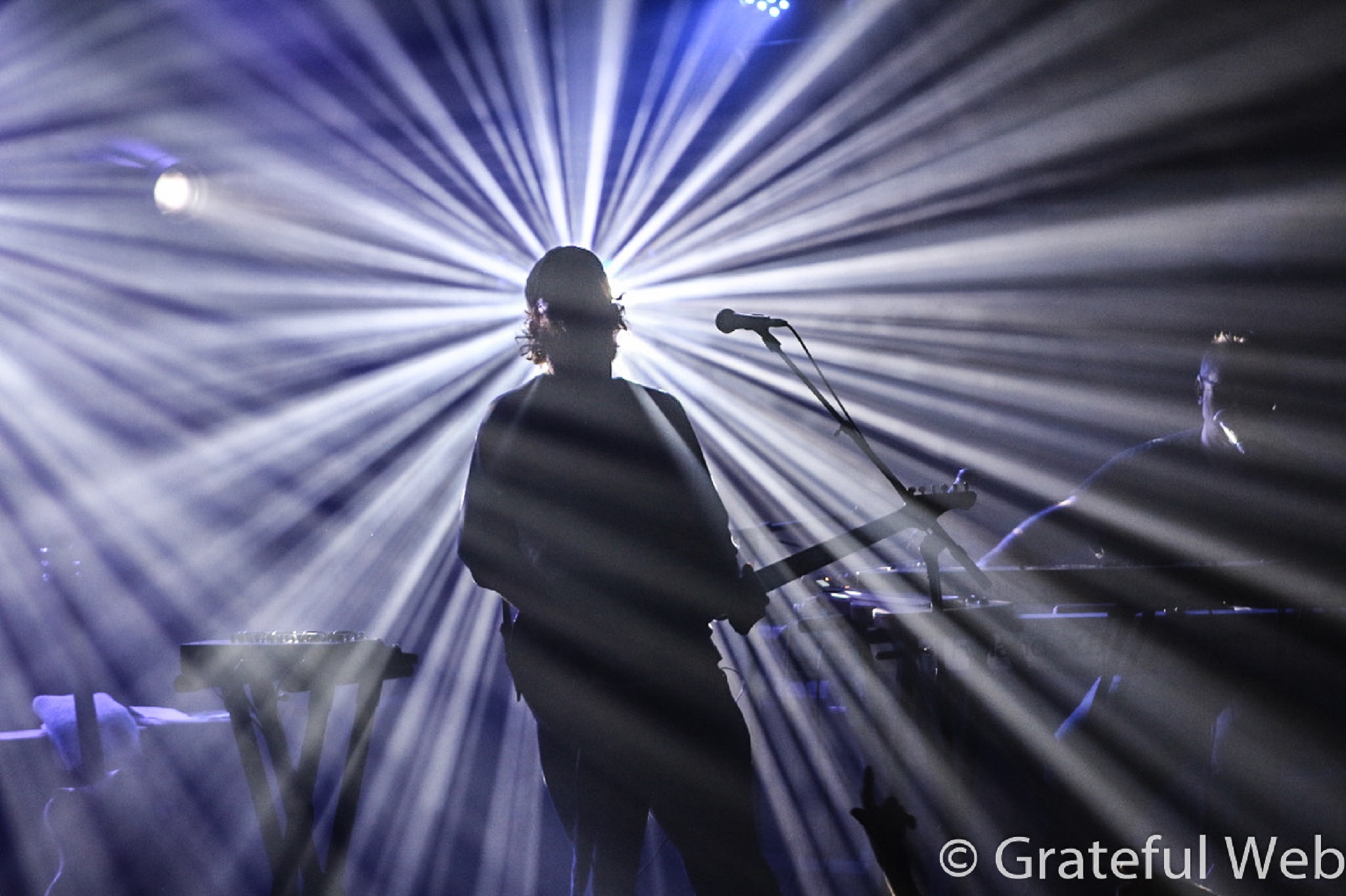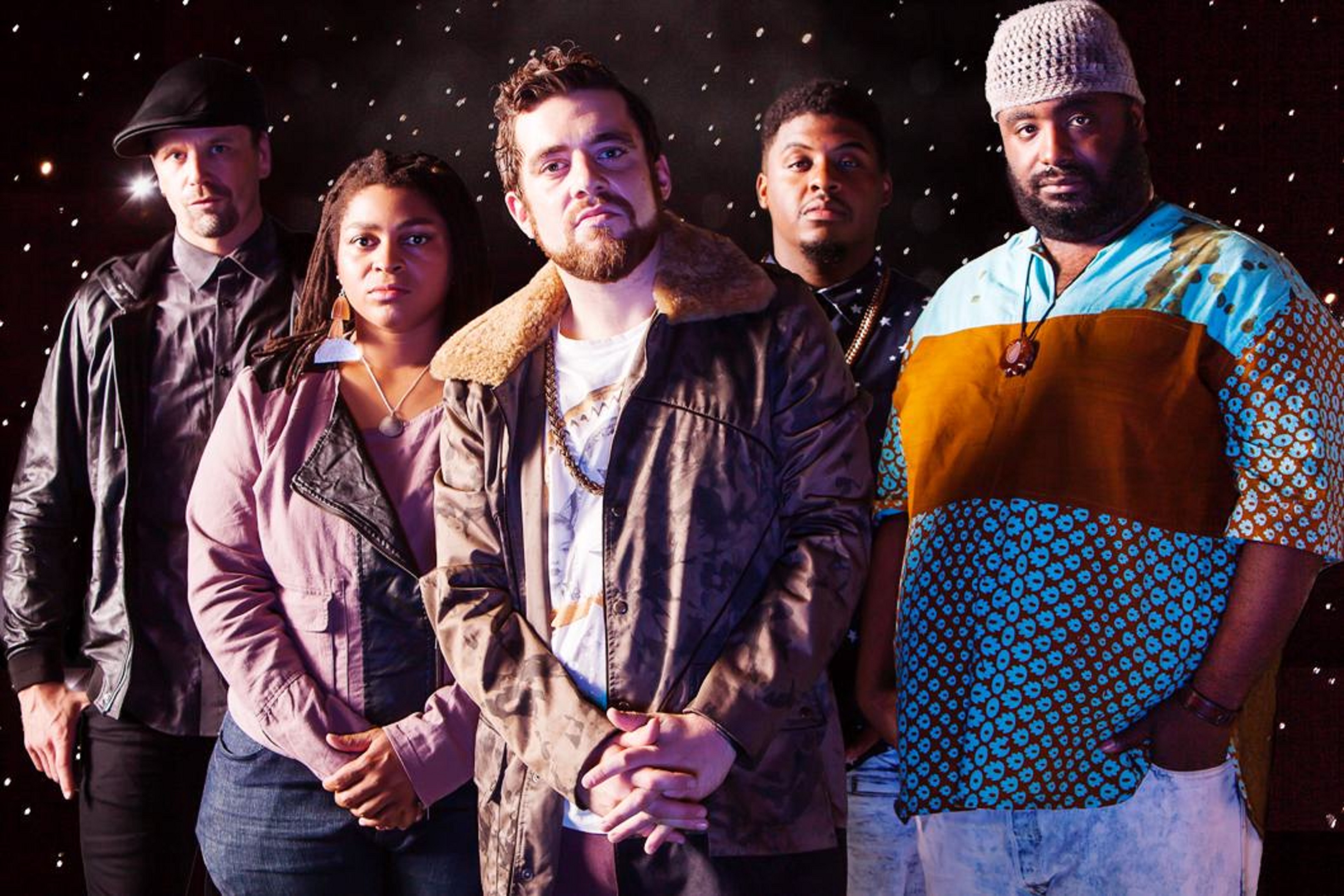Bass player Reggie Scanlan built an extensive resume throughout The Radiators’ three decade-plus run. Not everybody can say they played with Professor Longhair or James Booker, but Reggie can. When The Rads hung it up in 2011, Reggie was already on to the next one and saying so long to a bout with cancer. A road warrior with an appreciation for the arts and photography, Reggie has soaked up the substance that came before him and carefully selected the mold he performs within to this day. With a week until The New Orleans Suspects’ two-night run at Cervantes in Denver, Colorado, Reggie joined Grateful Web’s John Schumm in a wide-ranging discussion on the band and their full-frontal representation of the Crescent City.
Check out keyboard player CR Gruver’s interview Here.
Musicians from New Orleans will be the first to let you know where they’re from. You may not catch it from their accent, but you very well might in their chops. The below sea-level haven for the arts and culinary delights has been attracting musicians for years; churning them out and chewing them up. It isn’t Nashville, where labels kick you to the curb over a lack of cooperation in their vision for your music, but NOLA, where if you can’t keep up you keep out. If you want to test your clout, NOLA will let you know, and quickly. Reggie Scanlan and The New Orleans Suspects wear the city like a badge: loud and proud. While you may not know what you’re in for, and you might not know the artists by name, the title New Orleans Suspects tells you everything you need to know about what they bring to the table.
GW: My name is John Schumm with Grateful Web, and I’m joined by Reggie Scanlan, bassist of The New Orleans Suspects and NOLA royalty by way of over thirty years with The Radiators. With a new album, Ouroboros, and a healthy dose of tour dates coming up, it doesn’t sound like I need to ask you what you’re doing to stay busy, but what do you have going on for the next week before you head to Colorado?
RS: Basically next week is more or less off for us. The early part of this spring was a little bit light for us. CR’s (Gruver/keys/read interview here) wife had a baby so he was looking for a little time to deal with that. So we’ve just been doing stuff around town, things like that, but its been pretty light. So I’ve been spending all my time in the darkroom, catching up there. But once we get to Colorado that’s kind of kicking it off for the summer. We’ll be in full tour mode.
GW: You mentioned the darkroom, and I was going to ask you about it later on, but since you mentioned it, let’s jump in. It seems like more than a hobby to you, what is it about photography that you really dig?
RS: It’s something that I’ve always been interested in, but when I was young, you know, you don’t want to take time away from what you’re primarily are involved in, which was learning to play bass. Actually since college, I took an Art History class and at that time in the seventies the big argument going on was is photography art? Luckily I had a professor who was a young guy, who did include a lot of photography in the class. I got turned onto Man Ray and Mary Ellen Mark, people like that. It sort of gave me the idea that photography was more than just holiday pictures and birthday parties with your family, that sort of stuff. I learned like I learned to play the bass: I found photography to work out life and kind of emulate that until I found my own voice. A lot of what I do is what I guess you would call “street photography.” The guys who influence that are like (Henri) Cartier-Bresson, Edouard Boubat, Sergio Larrain, people like that. I just love it.
it’s also a solitary endeavor; I guess you could call it. I’m not by nature a very collaborative person, so to me, actually being the bass player in a band, (I’m) not quite sure how that happened. But photography gives me something I can do totally the way I want to do it. When the band, when The Rads started getting on the road, the first couple years you start to party and it’s all great and everything but I got really bored with it pretty fast. Photography sort of became a reason to be doing stuff on the road. It got me out of the hotel and it’s just the other side of my bass playing, I guess.
GW: So a camera is something you’ve always got packed for tour?
RS: I actually, literally, am never without a camera. I just got back from breakfast; always have a camera with me. Even on stage I’ve got one within five feet at all times (laughter).
GW: You mentioned some of the influences you have in photography. What were some of your early influences on bass, once you started getting into it?
RS: Once I started listening to bass players and seeing what I wanted, my guy for a long time was Jerry Jemmott, who played on BB King’s “The Thrill is Gone,” “Chain of Fools.” He was a studio bass player and a sideman; he was with King Curtis’ band The King Pins. Chuck Rainey was my other huge influence. Once I started getting settled into them, the other rock guys who influenced me were Rick Danko of The Band, Berry Oakley with The Allman Brothers, both of those guys had styles that were very interesting and a little bit different from what you’d normally hear. And it wasn’t until later on that I started appreciating Carl Radle (sic). I like Phil Lesh, even though I didn’t copy anything by him and didn’t really want to play anything like him. I like his unique approach, he had a very different take on how the bass functioned in a rock band, which I understand coming from his background. But again, it was not something I wanted to assimilate in my playing. Of course George Porter Jr. is a big influence because you grow up under his umbrella in New Orleans. Guys like Duck Dunn with Stax, James Jamerson. Those were the guys that really gave me direction and then later on when I started listening to jazz there were several upright players whose work I really gravitated towards. Paul Chambers is probably the main guy.
GW: Do you use any upright on the new album or on stage with the band?
RS: Not on stage but I do use it on one track on the Ouroboros album. In The Rads, for about five years, I played electric upright with the band. Now I don’t usually play it unless it’s something for the studio.
GW: Your music and that of The New Orleans Suspects personifies New Orleans, as the name suggest, though there are all of these other influences. What does it mean to the band to be wearing the cities’ name like a badge anywhere you go, representing more than just music, but the city as a whole?
RS: It’s kind of interesting, and I think this is true for most New Orleans musicians: you do wear it as a badge. It carries a certain cache with it and people take a little more notice because you’re from a place that’s known for musicians. And if you’re coming from a place without as many musicians, the competition is pretty heavy. You have to be up to a certain standard to even function, and I think people are aware of that, audiences outside of New Orleans are aware that they’re going to get more just because it’s a band from New Orleans; it’s going to have an edge. It’s not like if you hear a band coming out of Albuquerque. They may be the best band in the world, but Albuquerque’s not known for having a music scene that’s going to produce that amount of musicians that are that highly accomplished. And musicians from New Orleans are proud of that.
GW: As they should be. I love getting down there. I actually work for a band myself and we get down to New Orleans a couple of times a year.
RS: Who you working with?
GW: JJ Grey & Mofro out of Jacksonville.
RS: Oh yeah, everybody knows who those guys are. JJ’s an awesome singer, man. But in New Orleans too, for guys like me, my age group-you know I was in Fess’ (Professor Longhair) band and played with (James) Booker and all of these guys-and being able to play with those guys, you have an extra little badge you carry because you’re kind of the next guy carrying on from what you learned from those guys, and you feel responsible to them in a certain way. I think musicians around here definitely have that pride in what they do.
GW: It’s like you said, New Orleans is a music town. There are so many artists and musicians everywhere. I read that you assembled the group (NOLA Suspects), so I wasn’t sure if it came about jamming with one another at The Maple Leaf or what…
RS: I didn’t really assemble the group as much as I egged them on to do it as a full-time band. We came together one night at The Maple Leaf just accidently, I don’t remember if the band didn’t show or they cancelled or they might have forgotten to book a band for that night, but Hank-God bless the Maple Leaf-but Hank, the owner, has a pool of musicians he’ll call if that happens. I got a call one night, ‘can you do a gig, you off the road?’ So I went over there and the drummer was an old buddy of mine and then Jake (Eckert) and CR (Gruver) were the guitar player and piano player for the gig, who I had never met before. At the end of the night we had a good time and played well together so we told Hank that if this ever happens again, call us up and we’ll do it.
We started doing gigs like that, and then the drummer went off to California to do some stuff. Willie (Green/drums) was our first choice, especially for me because we’d been doing stuff for years and always talking about having a band. So he was in and that went on for about a year and a half, just doing little side things whenever we could get together and play. Then in October of 2010 when Ed (Volker) announced he was retiring from The Radiators, the first thing I thought was, man, I already got a band ready to go, if I could get them to do it. So I called Willie up and said look, The Neville Brothers just announced they’re not going to be touring anymore, Ed just quit the band, so this is it, we’re doing it. We got together with Jake and CR and said, look Jake you want to quit the Dirty Dozen (Brass Band) and do something else. CR, you know this is something we can all own. And they were a little bit hesitant about it because it’s a stretch, especially for Jake and CR because Jake was working with Dirty Dozen and even though he wanted to move on, the money was good, and he as a family. Same thing with CR, he was making good money, playing every night.
So I was like, look, if the booking agents aren’t going to do it, let’s do it. I kind of put the whole thing together and presented it to them and kind of kept pushing and egging them a little bit, and Jake was like ‘all right, I’m going to quit the Dirty Dozen.’ CR was like, ‘well alright, if you’re going to quit your job I’m going to do it too (laughter).’ Then we added Kevin Howerson from the Dozen on sax, and he was with us for about a year or so and went back to the Dozen and at the same time Jeff (Watkins) had been kind of nosing around looking for something to do. He’d been in James Brown’s band for twelve years and working for Joss Stone for six years and running her band and producing, and he really wanted something of his own, where he wasn’t going to be making someone else’s career. So he was ready and he was the last thing we needed to make the whole picture; it was a natural fit and since then we haven’t looked back, there’s no need to. It’s been evolving ever since then. If you look at it on paper this looks like the craziest idea in the world, but for some reason, whatever the quirkiness of us playing individually is, it seems to all fit into some gear pattern that works, you know?
GW: It’s great to hear how you egged everybody on to get the band together like that. It obviously seems like you took no break between The Radiators and you certainly didn’t let cancer keep you down.
RS: Oh no, the break was nothing because like I said, Ed (Volker) made the announcement in October and at that point we had decided that the last shows were going to be in June of 2011, so that gave me roughly seven months to get the whole thing up and running and start getting gigs booked and all that kind of stuff. The Rads did their last show on June 11th or something, whatever; we were already on the road a week to a week and a half after that. It was a very short kind of break, and to be honest with you I didn’t really want to take a break. I was too excited about something new. As much as I loved being in The Radiators and all that it did for my career and my playing and everything else, at the end of the day it was thirty three years, and the prospect of doing something new was very enticing. I was like, why would I want a break, I’m just going to be sitting around wishing I was playing. It was a clean break, and the only other bump in the road was the following year when I got diagnosed and I was in the hospital for a month. I didn’t want the band to not work because we were already building momentum, so we brought in a sub for me for the month. I got out of the hospital and two days later I was on stage at Jazz Fest. My doctor thought I was crazy, they said, ‘you’ve got to be kidding me, man.’
GW: You’re a warrior!
RS: That’s one word for it. Their word was insane, but they were like, ‘look, if you’re going to do this you have to go there right before the set and you have to leave and go home right after, you can’t stay for Jazz Fest (NOLA Jazz and Heritage Festival).’ So I said ok, I’ll do whatever you guys tell me. I tell you what, I got there about a half hour before the set, played the set, my manager drove me home and I collapsed for six hours (laughter). It was worth it, I’ve got to say, and two weeks later I was on the road. The first few months my doctors said it wasn’t such a good idea, but I said it is a good idea because if I just sit here at home I’m going to be depressed and bored, I’d rather be out doing something. The fatigue issue was really the whole concern. They were like, ‘look, if you’re going to do it, as soon as you feel fatigued you’ve got to stop doing it. If it’s in the middle of a gig, you’ve got to stop.’ I said if you let me go on the road I’ll do whatever you tell me, so I did. I didn’t really have too much of a problem. There was one day I knew I was going to burnout, but it was an elected thing. Other than that, it was kind of tiring but it wasn’t anything that was imposing on me. By the end of the following summer I was totally back to feeling one hundred percent. It hasn’t really been an issue. I do get scanned every six months and get my blood work done every three months, but that really doesn’t affect the band at all. So as long as it stays like that, I am good to go. On a day-to-day basis I don’t really think about it too much because you have to put those types of things into a workable perspective if you’re going to be living your life. You can’t wake up every day and be freaked out that you have cancer. If it’s not bothering you that day, don’t worry about it. Do what you want to do. And when you’re supposed to go see a doctor, go do that. And if something changes and they tell you, deal with it then. If you do what you’re supposed to be doing, that’s about all you can do, and there’s no real point in being preoccupied with it.
GW: And it sounds like with touring, music and photography you’ve got plenty of outlets to keep your mind on besides that.
RS: Oh yeah, that’s exactly what I’m saying. I’m too busy doing other stuff to be sitting around worried I have cancer if it’s not even effecting me that day, so yeah, I’ve got other stuff to do (laughter). I got three dogs that’ll occupy me if nothing else.
GW: You’re a man that likes to stay busy, or as CR (Gruver) said, ‘one of the hardest working people in this business.'
RS: I’ve got to tell you, everybody in this band could say that about everybody else in the band. Unlike a lot of bands, when we have time off, we’ve got guys putting in six hours of work a day doing behind the scenes stuff and dealing with merchandise and getting the band taken care of; dealing with booking and advances, it never stops. I know a lot of bands that are good and they have gigs but they always complain that they don’t have stuff going on and this and that. It’s a job, you have to get up in the morning and go into the office for six to eight hours and make it happen. Everybody in the band does that. CR spends half of his days and nights working on marketing things and conferences with our manager about stuff. Jake’s in the studio doing stuff and so is Jeff, and I’m doing advances. Everybody has their job that they do. You have to really put in the time to make it happen. Everybody in the band has to be the hardest workingman in show business.
GW: I’m looking forward to seeing all of that come together next week at Cervantes in Denver.
RS: I’m looking forward to it too.
GW: Thanks so much for taking the time to talk to me
RS: Oh thanks for the interview, you kidding?






